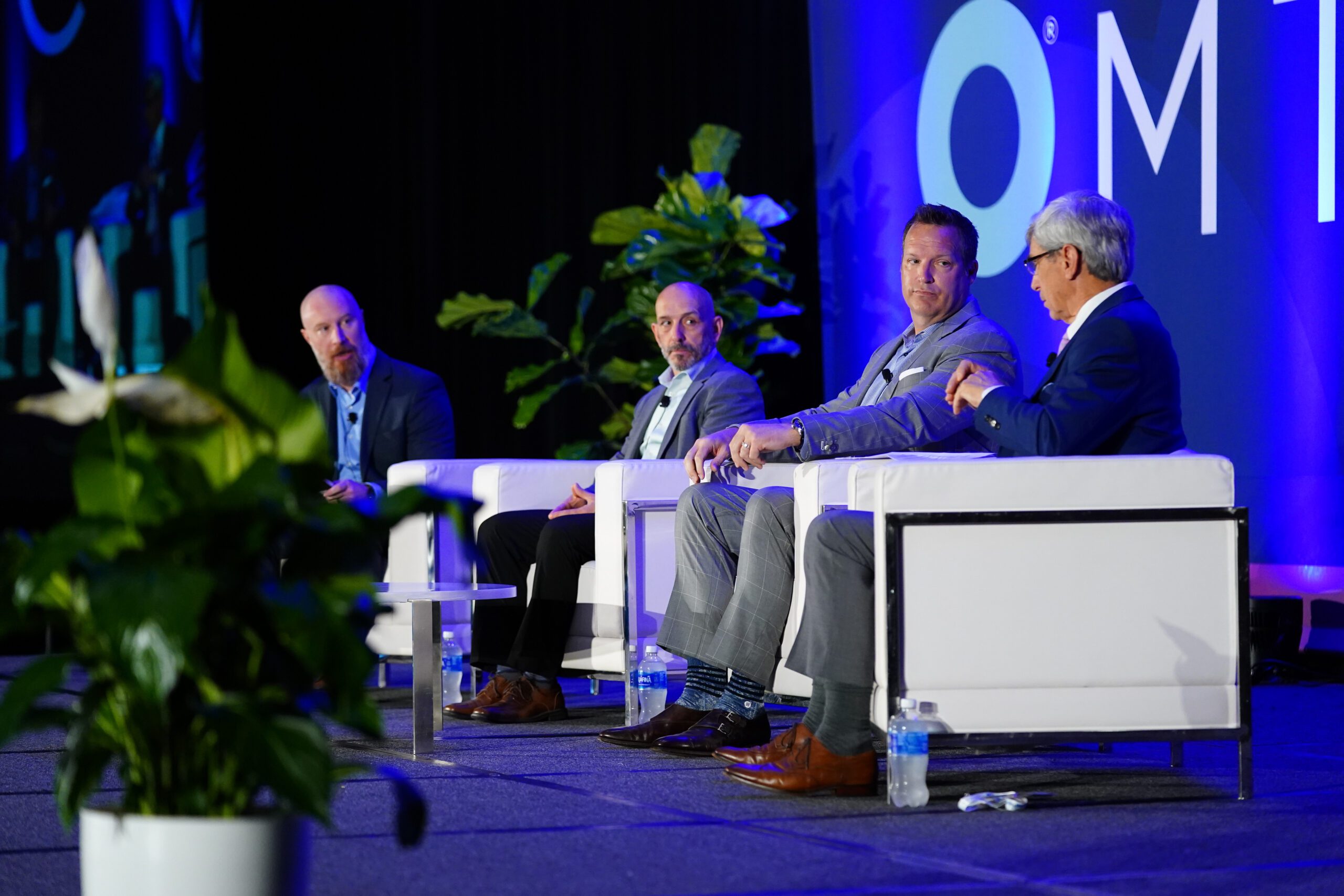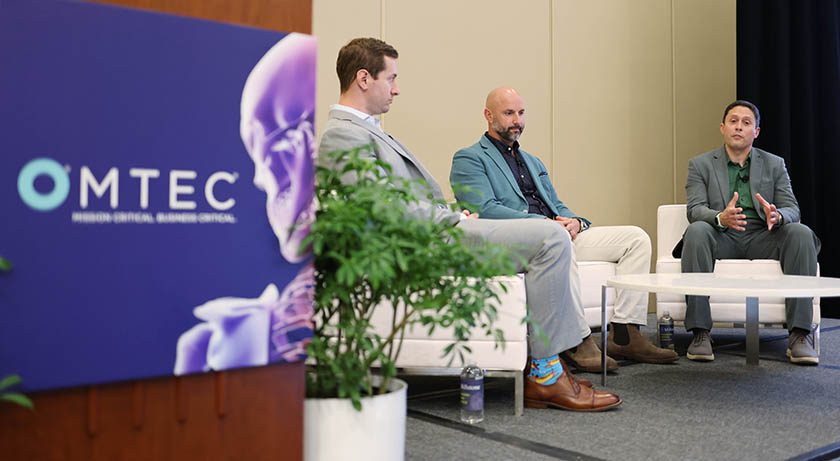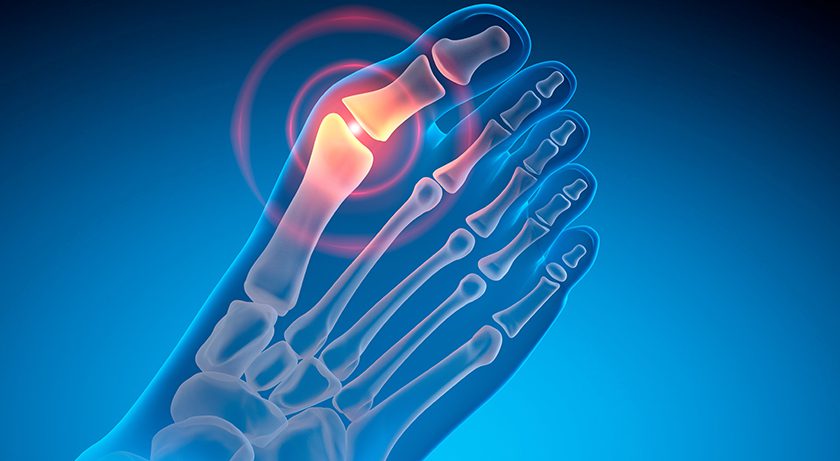

 Copy to clipboard
Copy to clipboard 
Aaron Smith identified a significant market opportunity for ankle instability. As the former Senior Director of Extremities at Wright Medical, he knew that orthopedic companies had long ignored suitable solutions for tendon and ligament repair and augmentation in the space. He identified a biomaterial with historical clinical evidence that could fill the market need and co-founded Artelon in 2017.
Stryker acquired Artelon in July, less than four years after acquiring Wright Medical, including the business unit Mr. Smith previously ran.
“I started Artelon with the knowledge that there was a chink in their armor, and my assumption was correct,” he said. “They had competitors with sports products in the same customer and sales group. At the same time, Stryker looked at what we had done and could layer their hundreds of direct reps over our product. It was an easy force multiplier.”
While Mr. Smith took Artelon from founding to exit in just seven years, he said that it’s difficult to predict when the right acquisition opportunity will present itself.
His perspective was shared during the Winners Circle panel discussion at the Musculoskeletal New Ventures Conference. The session highlighted advice from orthopedic startup founders who successfully raised capital, commercialized their technology and then sold their business to a strategic.
Joining Mr. Smith was Kevin Rocco, CEO of Biorez, which was acquired by CONMED in 2022, and Vernon Hartdegen, CEO of CrossRoads Extremity Systems, which was purchased by DePuy Synthes in 2022. Their stories confirm that there’s not one path for orthopedic startups that seek to be acquired.
Timing the Sale
Artelon was formed when Mr. Smith helped a group of European investors revitalize their biomaterial for the foot and ankle market. Among the co-founders was Lars Peterson, M.D., Ph.D., a renowned orthopedic surgeon with decades of experience in synthetic tendon and ligament technologies whose vision came to fruition with Artelon’s Dynamic Matrix.
For years, Artelon was funded by angel investors, securing a couple million at a time, Mr. Smith said. “From 2017 to 2023, we were playing with house money,” he added. “We built the business incrementally. We were painfully cash efficient, lean from a headcount standpoint and raised four rounds prior to our first venture round.”
It became clear that Artelon needed significant financing to grow its commercial operations and expand its clinical research. Artelon raised $20 million in a Series B in 2023, and strategics immediately began targeting the company for purchase.
“From our perspective, the timing was out of whack,” Mr. Smith said. “We had just put three years’ worth of money in the bank and had a straight line to profitability. Strategics knew we were one of the few companies that recently got funded, which would have required a rigorous due diligence process.”
Mr. Smith said that multiple companies were interested in Artelon, but Stryker was the only player in a position to make an immediate offer. “You want to have competition around a deal, but it doesn’t always go the way you think it will,” Mr. Smith said. “It’s hard to get multiple companies lined up to bid on an asset at the same time. We knew that the other strategics weren’t ready to come to the table with us. It was go with Stryker or keep running the business.”
Stryker’s bid was attractive, and Artelon decided to sell the business.
Pivoting When Necessary
Mr. Rocco co-founded Biorez in 2016 to revive a graft replacement technology that his previous employer, Soft Tissue Regeneration, failed to commercialize
Biorez received FDA 510(k) clearance in May of 2021 for BioBrace, an absorbent microporous collagen scaffold reinforced with resorbable polymer microfilaments for soft tissue repair of the rotator cuff, ACL and Achilles tendon. As Biorez was raising its Series A round in 2022, CONMED acquired the company for $85 million at closing and up to an additional $165 million in growth-based earnout payments over four years.
“We sold very early,” Mr. Rocco said. “We had a small amount of revenue but a positive signal, so we decided to share the risk in earnouts.”
Biorez raised $12 million in multiple funding rounds between its founding and commercial launch. Mr. Rocco said the company’s goal was to raise a $15 million round from current investors, new investors and a strategic to fund the collection of clinical data before executing future growth rounds of investments.
Biorez approached orthopedic companies at the AAOS Annual Meeting in 2022. During those investment discussions, CONMED pivoted and provided Biorez with a Letter of Intent for acquisition.
Mr. Rocco said there was significant internal debate about whether it was the right time to sell the company. The need for cash and the desire not to hinder its commercial efforts played a key role in the decision.
“We thought it was best for everybody — our investors, employees and the strategic — to sell,” he said. “If we had taken on $15 or $20 million more in investments, it might have changed our value proposition.”
Entertaining Bids
Mr. Hartdegen spent more than a decade in product development before he co-founded CrossRoads Extremity Systems in 2014 to focus on bunion repair. In under 12 months, they built a revenue-generating company with less than one million of invested capital.
The company’s narrow focus on the fast-growing foot and ankle space and ability to remain capital efficient and churn out new products led to its purchase by DePuy Synthes in 2022.
CrossRoads raised four rounds of financing in its first five years from family, employees, MB Venture Partners and other small investors, Mr. Hartdegen said. “You’re never out of financing mode,” he added. “Our thought process was to raise just enough money, hit a milestone, create value in the company and go out and raise money again.”
Strategics began approaching CrossRoads by 2018. Mr. Hartdegen said his board of directors and executive team thought it was too early to sell and decided to continue to build the company for a probable future exit.
In 2019, HealthpointCapital purchased a majority ownership in CrossRoads to provide needed backing to expand the company’s product portfolio and market presence. The relationship also led to CrossRoads acquiring assets from Surgical Frontiers. Less than two years later, CrossRoads had multiple strategics seeking to purchase them, Mr. Hartdegen said. Treace Medical Concepts, CrossRoads’ close competitor, had also just gone public, making the timing to exit even more attractive.
Mr. Hartdegen said the competitive acquisition process brought its own set of challenges. They were running the business during the day, performing due diligence at night and seeking to protect its sales channels from rumors.
“In the end, we narrowed it down to two companies and there was a back and forth on which one would be the right fit,” he said. “When the final offer came in, it was obvious which company to sell to.”
Startups remain the primary innovators in today’s orthopedic market, making their products important acquisition targets for mid- and large-size players. The founders of Artelon, Biorez and CrossRoads Extremity Solutions said their companies needed to remain focused on developing and commercializing implants that filled gaps in the orthopedic market. That narrow concentration ultimately led to their successful efforts.
Aaron Smith identified a significant market opportunity for ankle instability. As the former Senior Director of Extremities at Wright Medical, he knew that orthopedic companies had long ignored suitable solutions for tendon and ligament repair and augmentation in the space. He identified a biomaterial with historical clinical evidence that could...
Aaron Smith identified a significant market opportunity for ankle instability. As the former Senior Director of Extremities at Wright Medical, he knew that orthopedic companies had long ignored suitable solutions for tendon and ligament repair and augmentation in the space. He identified a biomaterial with historical clinical evidence that could fill the market need and co-founded Artelon in 2017.
Stryker acquired Artelon in July, less than four years after acquiring Wright Medical, including the business unit Mr. Smith previously ran.
“I started Artelon with the knowledge that there was a chink in their armor, and my assumption was correct,” he said. “They had competitors with sports products in the same customer and sales group. At the same time, Stryker looked at what we had done and could layer their hundreds of direct reps over our product. It was an easy force multiplier.”
While Mr. Smith took Artelon from founding to exit in just seven years, he said that it’s difficult to predict when the right acquisition opportunity will present itself.
His perspective was shared during the Winners Circle panel discussion at the Musculoskeletal New Ventures Conference. The session highlighted advice from orthopedic startup founders who successfully raised capital, commercialized their technology and then sold their business to a strategic.
Joining Mr. Smith was Kevin Rocco, CEO of Biorez, which was acquired by CONMED in 2022, and Vernon Hartdegen, CEO of CrossRoads Extremity Systems, which was purchased by DePuy Synthes in 2022. Their stories confirm that there’s not one path for orthopedic startups that seek to be acquired.
Timing the Sale
Artelon was formed when Mr. Smith helped a group of European investors revitalize their biomaterial for the foot and ankle market. Among the co-founders was Lars Peterson, M.D., Ph.D., a renowned orthopedic surgeon with decades of experience in synthetic tendon and ligament technologies whose vision came to fruition with Artelon’s Dynamic Matrix.
For years, Artelon was funded by angel investors, securing a couple million at a time, Mr. Smith said. “From 2017 to 2023, we were playing with house money,” he added. “We built the business incrementally. We were painfully cash efficient, lean from a headcount standpoint and raised four rounds prior to our first venture round.”
It became clear that Artelon needed significant financing to grow its commercial operations and expand its clinical research. Artelon raised $20 million in a Series B in 2023, and strategics immediately began targeting the company for purchase.
“From our perspective, the timing was out of whack,” Mr. Smith said. “We had just put three years’ worth of money in the bank and had a straight line to profitability. Strategics knew we were one of the few companies that recently got funded, which would have required a rigorous due diligence process.”
Mr. Smith said that multiple companies were interested in Artelon, but Stryker was the only player in a position to make an immediate offer. “You want to have competition around a deal, but it doesn’t always go the way you think it will,” Mr. Smith said. “It’s hard to get multiple companies lined up to bid on an asset at the same time. We knew that the other strategics weren’t ready to come to the table with us. It was go with Stryker or keep running the business.”
Stryker’s bid was attractive, and Artelon decided to sell the business.
Pivoting When Necessary
Mr. Rocco co-founded Biorez in 2016 to revive a graft replacement technology that his previous employer, Soft Tissue Regeneration, failed to commercialize
Biorez received FDA 510(k) clearance in May of 2021 for BioBrace, an absorbent microporous collagen scaffold reinforced with resorbable polymer microfilaments for soft tissue repair of the rotator cuff, ACL and Achilles tendon. As Biorez was raising its Series A round in 2022, CONMED acquired the company for $85 million at closing and up to an additional $165 million in growth-based earnout payments over four years.
“We sold very early,” Mr. Rocco said. “We had a small amount of revenue but a positive signal, so we decided to share the risk in earnouts.”
Biorez raised $12 million in multiple funding rounds between its founding and commercial launch. Mr. Rocco said the company’s goal was to raise a $15 million round from current investors, new investors and a strategic to fund the collection of clinical data before executing future growth rounds of investments.
Biorez approached orthopedic companies at the AAOS Annual Meeting in 2022. During those investment discussions, CONMED pivoted and provided Biorez with a Letter of Intent for acquisition.
Mr. Rocco said there was significant internal debate about whether it was the right time to sell the company. The need for cash and the desire not to hinder its commercial efforts played a key role in the decision.
“We thought it was best for everybody — our investors, employees and the strategic — to sell,” he said. “If we had taken on $15 or $20 million more in investments, it might have changed our value proposition.”
Entertaining Bids
Mr. Hartdegen spent more than a decade in product development before he co-founded CrossRoads Extremity Systems in 2014 to focus on bunion repair. In under 12 months, they built a revenue-generating company with less than one million of invested capital.
The company’s narrow focus on the fast-growing foot and ankle space and ability to remain capital efficient and churn out new products led to its purchase by DePuy Synthes in 2022.
CrossRoads raised four rounds of financing in its first five years from family, employees, MB Venture Partners and other small investors, Mr. Hartdegen said. “You’re never out of financing mode,” he added. “Our thought process was to raise just enough money, hit a milestone, create value in the company and go out and raise money again.”
Strategics began approaching CrossRoads by 2018. Mr. Hartdegen said his board of directors and executive team thought it was too early to sell and decided to continue to build the company for a probable future exit.
In 2019, HealthpointCapital purchased a majority ownership in CrossRoads to provide needed backing to expand the company’s product portfolio and market presence. The relationship also led to CrossRoads acquiring assets from Surgical Frontiers. Less than two years later, CrossRoads had multiple strategics seeking to purchase them, Mr. Hartdegen said. Treace Medical Concepts, CrossRoads’ close competitor, had also just gone public, making the timing to exit even more attractive.
Mr. Hartdegen said the competitive acquisition process brought its own set of challenges. They were running the business during the day, performing due diligence at night and seeking to protect its sales channels from rumors.
“In the end, we narrowed it down to two companies and there was a back and forth on which one would be the right fit,” he said. “When the final offer came in, it was obvious which company to sell to.”
Startups remain the primary innovators in today’s orthopedic market, making their products important acquisition targets for mid- and large-size players. The founders of Artelon, Biorez and CrossRoads Extremity Solutions said their companies needed to remain focused on developing and commercializing implants that filled gaps in the orthopedic market. That narrow concentration ultimately led to their successful efforts.

You are out of free articles for this month
Subscribe as a Guest for $0 and unlock a total of 5 articles per month.
You are out of five articles for this month
Subscribe as an Executive Member for access to unlimited articles, THE ORTHOPAEDIC INDUSTRY ANNUAL REPORT and more.
CL
Carolyn LaWell is ORTHOWORLD's Chief Content Officer. She joined ORTHOWORLD in 2012 to oversee its editorial and industry education. She previously served in editor roles at B2B magazines and newspapers.







